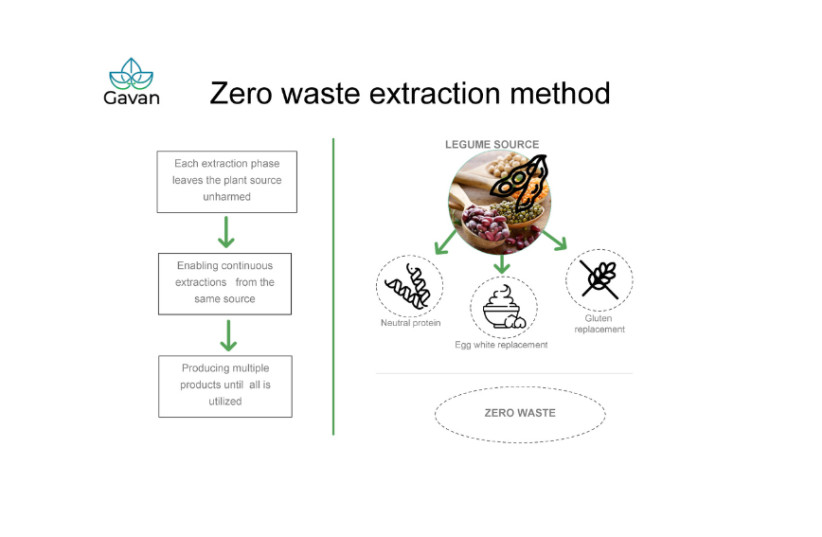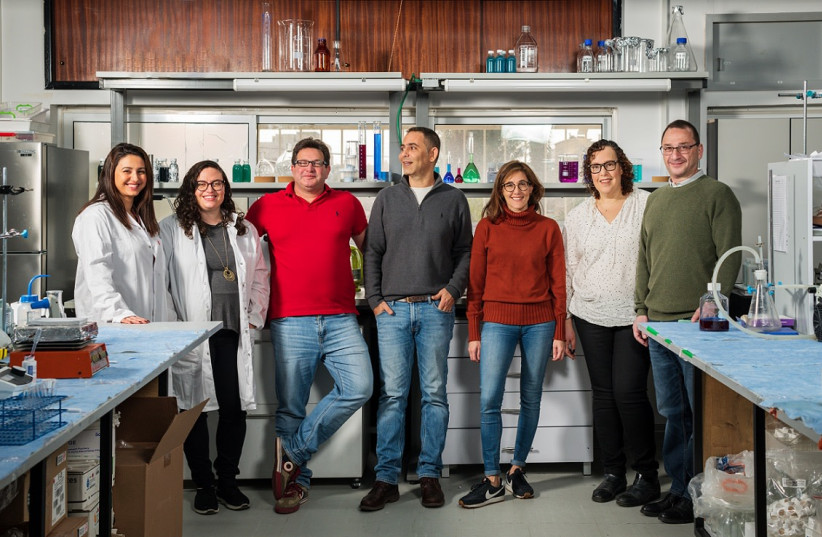The sustainability-based corporation found that lentils could be converted into nutritious, neutral-flavored, non-gluten flour.
Published: JULY 27, 2022

Israeli start-up company Gavan Technologies developed a new environmentally-friendly plant protein extraction process, the company announced on Tuesday.
The sustainability-based corporation found that lentils could be converted into nutritious, neutral-flavored, non-gluten flour, according to a recent report.
“The extraction of a high-profile, 92% protein isolate yielded additional value components including complex carbohydrates, fiber, minerals, and fat,” the company said. In other words, proteins and other valuable components of a plant can be extracted to create a nutritious flour — all the while leaving no waste behind.
“No part of the plant is left out,” stated Itai Cohen, CEO and co-founder of Gavan. “Our new, multistep technological platform enables us to take any plant source, isolate and extricate multiple proteins and other valuable components until the source is fully consumed.” Cohen, a high-tech entrepreneur, said the product’s gradual market rollout to be by 2023.
“No part of the plant is left out.”
Itai Cohen, CEO and co-founder of Gavan
Infographic demonstrating the protein extraction process. (credit: GAVAN TECHNOLOGIES)
Gavan’s advanced extraction method completes the sustainability practice of upcycling, according to the report, and can be applied to any plant protein source, from soybeans, chickpeas, lentils, algae, and others.
The company was also able to successfully derive multiple products from spirulina, a protein-rich, vibrant blue colorant.
“Innovation within alternative protein production focuses predominantly on finding more exotic sources of protein and processing them into more innovative, palate-friendly alternatives to animal proteins,” stated Cohen. “Many of the methods, however, fail to glean the full value of the plant source in terms of functional components and holistic goodness. They end up wasting valuable material.”
The Gavan team. (credit: GAVAN TECHNOLOGIES)
What has been done until now?
Older multiphase chemical processes lead to intrinsic losses in yield and quality at each step, according to the report, leading to significant degeneration in quality and profit. This makes transformative methods costly, both for a company and for the environment.
“The problem is not the source nor the product; the problem is within the process,” said Cohen. “Being sustainable and circular is integral to our business model.”
The novelty of Gavan’s product lies in its fix to sensory problems that may arise from other plant-based proteins — those associated with taste, odor, and color.
How to copy the real thing
According to Gavan’s website, the product’s neutrality provides solutions to food and beverage companies seeking to address challenges of texture, functionality, and scent, allowing the food industry to offer their customers a cleaner, healthier, and more appealing product.
Gavan’s holistic approach lies in harnessing the characteristics of the plant, an alternative to previous plant-based proteins that sacrifice nutritional value for appeal. The company’s technology extracts plant-based protein all the while maintaining the legume’s natural components and preserving its high functionality, according to the company’s website.
“The proteins maintain their original form — there is no resulting modification to their physical structure. All of the source’s nutritional and functional qualities are fully preserved,” explained Cohen.
The company’s modification process — which involves zero-to-minimal heat — harnesses the plant’s healthful characteristics to produce natural colors, protein isolates, flavor enhancers, and gluten substitutes, according to the report. The result is an all-natural, GMO-free, clean label, and reliable product.
“Over the last decade, food industry players have been consciously shifting their industrial processes to more sustainable standards,” said Cohen. “Consumers want to know how their food is manufactured, where the ingredients come from, and what is the environmental footprint of the products they are buying.”
Looking towards the future
Gavan’s new technology is a big step in sustainable plant-based protein production— more traditional processes can result in up to 80% of the natural resource going to waste.
“Our technology signifies a paradigm change, demonstrating how focusing on sustainable and circular production enables higher efficiencies and presents a better economic model,” stated Cohen. “This, for Gavan, defines a true, positive, ecological — and economical — impact and makes sustainability profitable.”
https://www.jpost.com/business-and-innovation/tech-and-start-ups/article-713288


